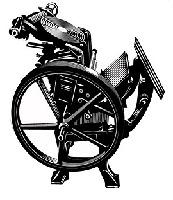- Posts: 1498
- Thank you received: 0
Obama's Repeal Of The Bush Tax Cuts
- Kate
-

- Mountain Legend
-

SS109 wrote: Doesn't really matter since there is no way the House will pass this.
I look forward to reading the Republican jobs bill. When is that coming out?
Please Log in or Create an account to join the conversation.
- HEARTLESS
-

- User is blocked
-

- Posts: 4316
- Thank you received: 30
The silent majority will be silent no more.
Please Log in or Create an account to join the conversation.
- Kate
-

- Mountain Legend
-

- Posts: 1498
- Thank you received: 0
HEARTLESS wrote: When it clears the House, just before the Senate kills it.
Do you have a link to the bill so we can all read it?
Please Log in or Create an account to join the conversation.
- PrintSmith
-

- Mountain Legend
-

- Posts: 5749
- Thank you received: 40
What the tax cuts were intended to do, and were successful in achieving, is raising the amount of tax revenue collected as a percentage of the national GDP. The tax revenue as a percentage of GDP was falling year to year prior to the 2003 tax cuts being passed and increased each and every year after the cuts were passed. The same phenomena was witnessed when JFK cut taxes, when Ronald Reagan cut taxes, when taxes were cut by overriding Truman's veto, and yes, even when Clinton cut taxes.mittra303 wrote: SS109, you're living in a state of denial if you believe even a single job was created by the Bush Tax Cuts. The truth is President Bush and his administration's policies tanked the US Economy. By contrast, in increasing taxes on the wealthy by a mere 3%, President Clinton created a budget surplus that President Bush was able to take advantage of and use for political gain in putting forth the tax cuts that decimated our economy. President Obama was foolish to allow those cuts to not expire.
Allowing people to keep more of the money that they earn gives them more money to spend on goods and services. It also encourages people to risk investing their money in the hopes of getting a larger return on their investment. I've got some news for you mittra, rich people already have enough money. Warren Buffet already has more money than he could ever hope to spend in one lifetime. If you had $1 Billion dollars, why would you risk losing it investing in a company instead of investing it somewhere where you wouldn't lose it? The answer is that with risk comes reward when you bet right. You get a 1:1 return when you risk losing your money by betting either red or black at the roulette table (slightly less that a 50/50 chance) and a 35:1 return when you are willing to take a 1:38 chance by betting on a single number. The higher the risk, the higher the reward. The middle and poor class don't benefit much from someone like Buffet placing safe bets, such as Treasuries or savings, but they do benefit a great deal when someone like Buffet is willing to place a risky bet with their money in a start-up company. Buffet stands to lose a great deal of money by investing in a start-up, so his reward must also be enticing. Taxes owed as a result of a successful bet are subtracted from the reward realized, which makes the reward smaller.
Keeping the roulette analogy, are you going to be more or less willing to place a $100 bet on number 17 at 38:1 odds if your reward is $2275 or $2975 ($3500 payoff less a 15% or 35% tax respectively)? Think the additional $700 in your pocket if you win would make a difference in the amount of risk you are willing to take on with your $100 investment? Now imaging being taxed at a 70% rate, where you are the one taking all the risk and the taxing entity receives the lion's share of the reward. Are you going to be more or less willing to take a 38:1 risk for the privilege of paying a $2450 tax and keep a $1050 reward than you would be for a $2975 reward and a tax bill of $525? Now add six zeros so that we are talking millions of dollars instead of hundreds of dollars and you quickly see why folks who are worth millions and billions of dollars, and really don't need millions or billions more, are quite content to put their money to work in Treasuries at the moment instead of in the economy, particularly an economy with a less than clear picture on whether they are going to be incurring a tax bill of $525 or one that is $2450 two or three years down the road if they make a successful investment today.
Please Log in or Create an account to join the conversation.
- PrintSmith
-

- Mountain Legend
-

- Posts: 5749
- Thank you received: 40
Cite the cost of a TV produced in the US versus one produced in China and you quickly understand why TVs are not produced here, a nation of 300 million people, instead of China, a nation of over 1.3 billion souls. What you are advocating is raising the cost of a TV to every consumer, and thus reducing the number of TVs sold each and every year, either by levying a tariff to raise the cost of the one built in China or having a US worker produce the TV and paying US wages and benefit levels to do so. Either way, that new TV goes from being something that is affordable for the middle class to something that becomes a major expenditure for them. Do you remember what a TV cost the average working class family when they were made here? Do you think that middle class family could have multiple TVs in their house if we returned to those days, not to mention the 97% of "poor" households that own a color television currently or the half of "poor" households that own more than one? For crying out loud mittra, we've already bailed out the domestic auto makers because they failed to produce a product at a price point that was attractive to the US consumer. Are you trying to make the case that we should raise the cost of Kias and Hyundais, which many people are currently buying because they are less expensive than their domestically produced counterparts, and make it harder for those people to afford a car at all?mittra303 wrote: Bring it on.
The US used to be the greatest producing nation in the world. Now we're the largest importer and debtor. The only thing the US produces anymore is debt.
Name a single television produced in the United States.
Please Log in or Create an account to join the conversation.
- PrintSmith
-

- Mountain Legend
-

- Posts: 5749
- Thank you received: 40
Really 109? You think that China would be hurt a lot less than the US consumer by raising the price of the vast majority of the goods the middle class is buying by 15% or more? Let's face it, the cost of producing the majority of those goods here would be a lot higher than an additional 15%, that's the reason the manufacturing left to begin with. When you can literally build it, ship it to a port, sail it across the Pacific Ocean, unload it and ship it to a store for less money than you can build it domestically, the price difference between foreign goods and domestic ones are a lot more than 15%. A 15% savings doesn't even begin to cover the risk of having the entire operation seized by a foreign government.SS109 wrote: I actually think strategic tariffs could be useful. If you punish the industries that do most of the cheating, it will put the others on notice. The Obama administration has been going after some overseas tire suppliers who are supposedly selling under actual cost and offering substandard, dangerous product.
And right now, I think a trade war with China would hurt them worse than the US.
Please Log in or Create an account to join the conversation.
- PrintSmith
-

- Mountain Legend
-

- Posts: 5749
- Thank you received: 40
You must have missed it, it came out a few months ago. It was called Cut, Cap and Balance. It would have started us down a path towards having folks invest money in the economy instead of the federal debt. Money is going to be put to use one way or another. Those evil rich folks aren't going to be putting it underneath their mattresses after all. Stop giving them a virtually risk free investment at a lower return and you just might end up putting them into a position where they have to invest it where it might actually do all of us some good.Kate wrote:
SS109 wrote: Doesn't really matter since there is no way the House will pass this.
I look forward to reading the Republican jobs bill. When is that coming out?
Please Log in or Create an account to join the conversation.
- pineinthegrass
-

- Mountain Legend
-

- Posts: 2836
- Thank you received: 25
Nmysys wrote: Capital Gains taxes under Clinton were raised to 39%.
Tariffs against foreign made goods end up being a tax against all of us in the form of higher prices paid for the item. So that is your solution to our problems in the economy? Hmmm!
Long term capital gains were lowered under Clinton from 28% to 20%. Bush lowered it further to 15%.
If you don't hold the asset for a year, then you pay short term capital gains which are taxed the same as regular income. So technically those were increased under Clinton, but most people hold assets over a year to pay the much more favorable long term capital gains rate.
Please Log in or Create an account to join the conversation.
- FredHayek
-
 Topic Author
Topic Author
- Mountain Legend
-

- Posts: 30528
- Thank you received: 179
PrintSmith wrote:
Really 109? You think that China would be hurt a lot less than the US consumer by raising the price of the vast majority of the goods the middle class is buying by 15% or more? Let's face it, the cost of producing the majority of those goods here would be a lot higher than an additional 15%, that's the reason the manufacturing left to begin with. When you can literally build it, ship it to a port, sail it across the Pacific Ocean, unload it and ship it to a store for less money than you can build it domestically, the price difference between foreign goods and domestic ones are a lot more than 15%. A 15% savings doesn't even begin to cover the risk of having the entire operation seized by a foreign government.SS109 wrote: I actually think strategic tariffs could be useful. If you punish the industries that do most of the cheating, it will put the others on notice. The Obama administration has been going after some overseas tire suppliers who are supposedly selling under actual cost and offering substandard, dangerous product.
And right now, I think a trade war with China would hurt them worse than the US.
PS,
So you wouldn't penalize a country or company that was selling steel for 50% less than they could produce it for? Taking losses for a couple years so that their US competition would go out of business?
I had an economic Prof. who agreed with you, if other companies are willing to lose money selling products to you below cost, buy them, buy as much as you can until you bankrupt them, or their country if the industry is state subsidized like Airbus.
Thomas Sowell: There are no solutions, just trade-offs.
Please Log in or Create an account to join the conversation.
- pineinthegrass
-

- Mountain Legend
-

- Posts: 2836
- Thank you received: 25
mittra303 wrote: SS109, you're living in a state of denial if you believe even a single job was created by the Bush Tax Cuts. The truth is President Bush and his administration's policies tanked the US Economy. By contrast, in increasing taxes on the wealthy by a mere 3%, President Clinton created a budget surplus that President Bush was able to take advantage of and use for political gain in putting forth the tax cuts that decimated our economy. President Obama was foolish to allow those cuts to not expire.
Job growth depends much more on the economy than a 3% tax increase. The economy was already improving from the 1991 recession and job growth had resumed before Clinton passed his tax increase. And the 2001 recession had already begun and we started losing jobs while we still had the Clinton tax rates.
Likewise, we did see 7 years of job growth ofter the Bush tax cuts. But the 2008 recession wiped out those gains.
The economy is a much bigger force on job growth than the tax rates were. And I don't think the tax rates had much to due with the 1991 and 2008 recessions. Those were due to other factors (dot com and housing busts), and the recessions killed the job growth.
http://data.bls.gov/timeseries/CES0000000001?output_view=net_1mth
Please Log in or Create an account to join the conversation.






